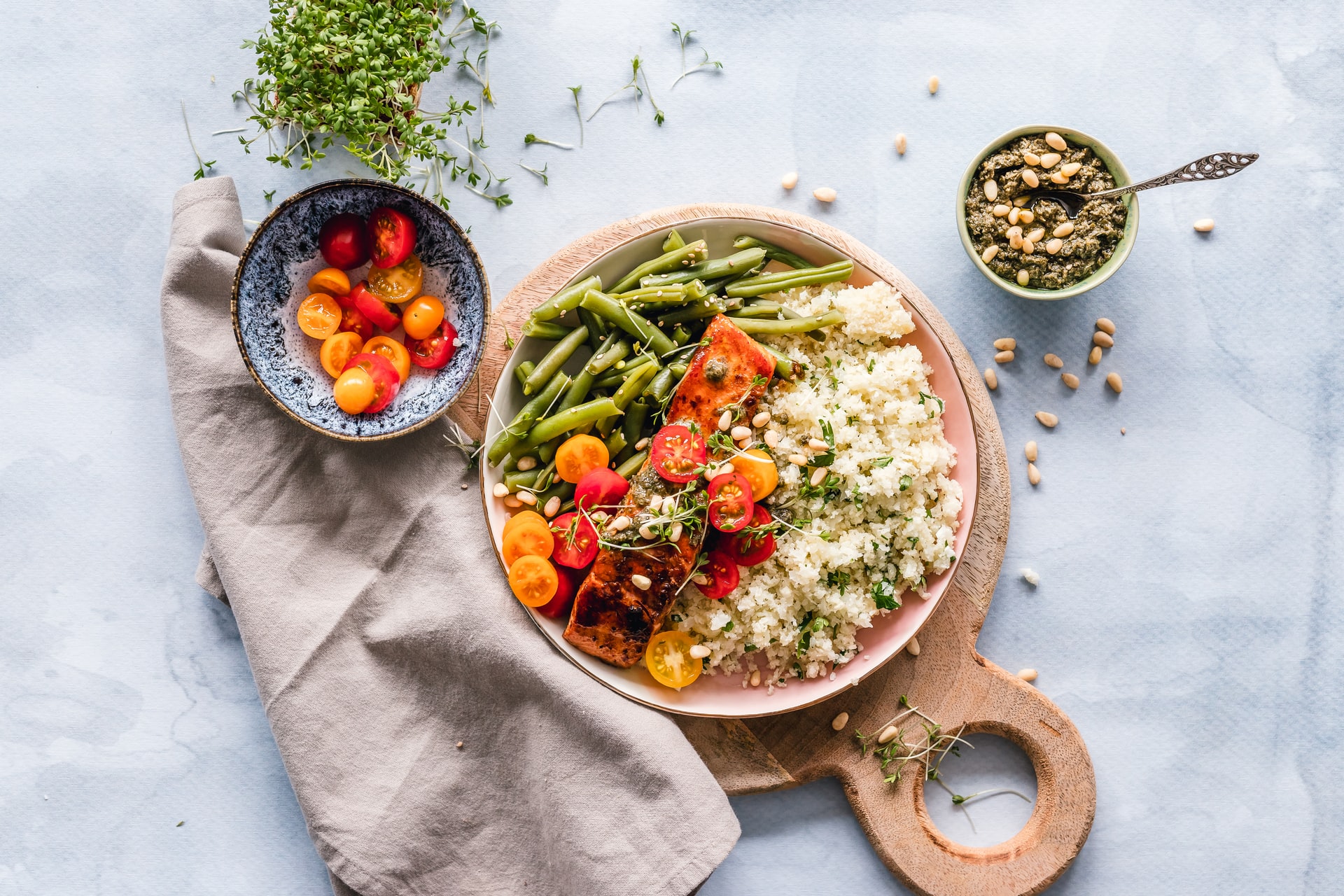It is not always easy to find the time or money for grocery shopping. But if you want to make sure you’re getting enough nutrients and energy for your training, it pays off in the long run. And there are tricks to help with that. For example, fruit can be a great snack because it doesn’t need to be refrigerated and is full of vitamins and minerals like potassium (which helps with muscle recovery). The trick is choosing healthy varieties; Canned fruit can contain high amounts of sugar or salt. What else? You may need more protein than some people – around 1 gram per pound of body weight – so don’t skimp on meat, eggs, beans, cheese or milk. Vegetarians are often encouraged to consume soy protein products, but soy contains plant estrogens that disrupt the body’s natural hormonal balance. You can get carbohydrates from whole grain bread instead of white, and try to avoid simple sugars such as table sugar or fruit juices – honey, agave syrup or naturally sweet fruit are better for you.
1. Understand your fitness goals
Understanding your goals is the first step to a healthy diet. Do you want to lose weight, maintain your weight or gain weight? Once you’ve established your goal, it will be much easier for you to plan your diet. For example, if your goal is to build muscle, it will be important that you eat enough protein (about 1 gram per kilogram of body weight).
If your goal is to maintain or lose weight, it will be important not to go overboard with processed foods such as canned fruit, which can contain high amounts of sugar and salt.
It is also important for vegetarians to find a replacement protein source, as soy contains plant estrogens that disrupt the body’s natural hormone balance.
2. Choose a healthy diet for your goal
Once you know your goal, it’s time to plan and formulate your diet. If you are trying to lose weight, a good rule of thumb is to limit your daily caloric intake to 1,200 – 1,600 calories. To do this safely without experiencing a protein deficiency or other health consequences of restricting calories too much, you should work with a registered dietitian or nutritionist to help you monitor your food intake and adjust calories in a healthy way.
If you are trying to maintain your weight, you will likely be fine with a balanced diet consisting of a variety of foods with varying amounts of macronutrients. A good rule of thumb when it comes to your intake is 40-60% of your daily allowance
3. Find ways to save time and money shopping for groceries
One of the good ways to save money and time shopping for groceries is to do bulk shopping at stores like Auchan. This will allow you to get a lot of food for a low price, and it will also help you avoid the temptation to buy less healthy food that is more expensive.
When you shop in bulk, it is also important that you store everything properly. You want to make sure your food stays fresh and safe to eat by reading product labels and instructions before storing it in the refrigerator.
It is often cheaper and easier than cooking for yourself, which can be difficult if you are trying to lose weight or maintain your weight as there is a temptation to eat too many calories.
4. Avoid processed foods such as canned fruit that are high in sugar or salt
Processed foods are often laden with sugar and salt, as well as preservatives that prolong their shelf life on store shelves. When you are trying to lose weight, it is important that you do not eat them as they will increase your blood sugar levels.
5. Eat more protein than the average person – about 1 gram per kilogram of body weight
Protein is a macronutrient that is essential for muscle growth. Your muscles need a lot of protein after training as well, due to how many micro-tears the exertion has caused. To maintain muscle tissue, it is important to eat plenty of protein while exercising.
6. Eat carbohydrates from whole grain bread instead of white bread, and avoid simple sugars such as table sugar and fruit juices – honey, agave syrup, or naturally sweet fruit are good options
It is important to avoid simple sugars for several reasons. First, table sugar is the most common type of simple sugar. It is very easy to overeat sugar without realizing it, because it is hidden in so many foods, such as baked goods and ready-to-eat breakfast cereals. Eating too much table sugar can raise your blood sugar levels, make you feel hungry soon after eating, and cause you to gain weight.
If you want to make sure that you are eating well as an active and training person, this can be difficult. However, if you know your goals (eg, losing weight or gaining muscle mass), the process becomes much easier; all that remains is to find out which foods are best for achieving these specific goals.

